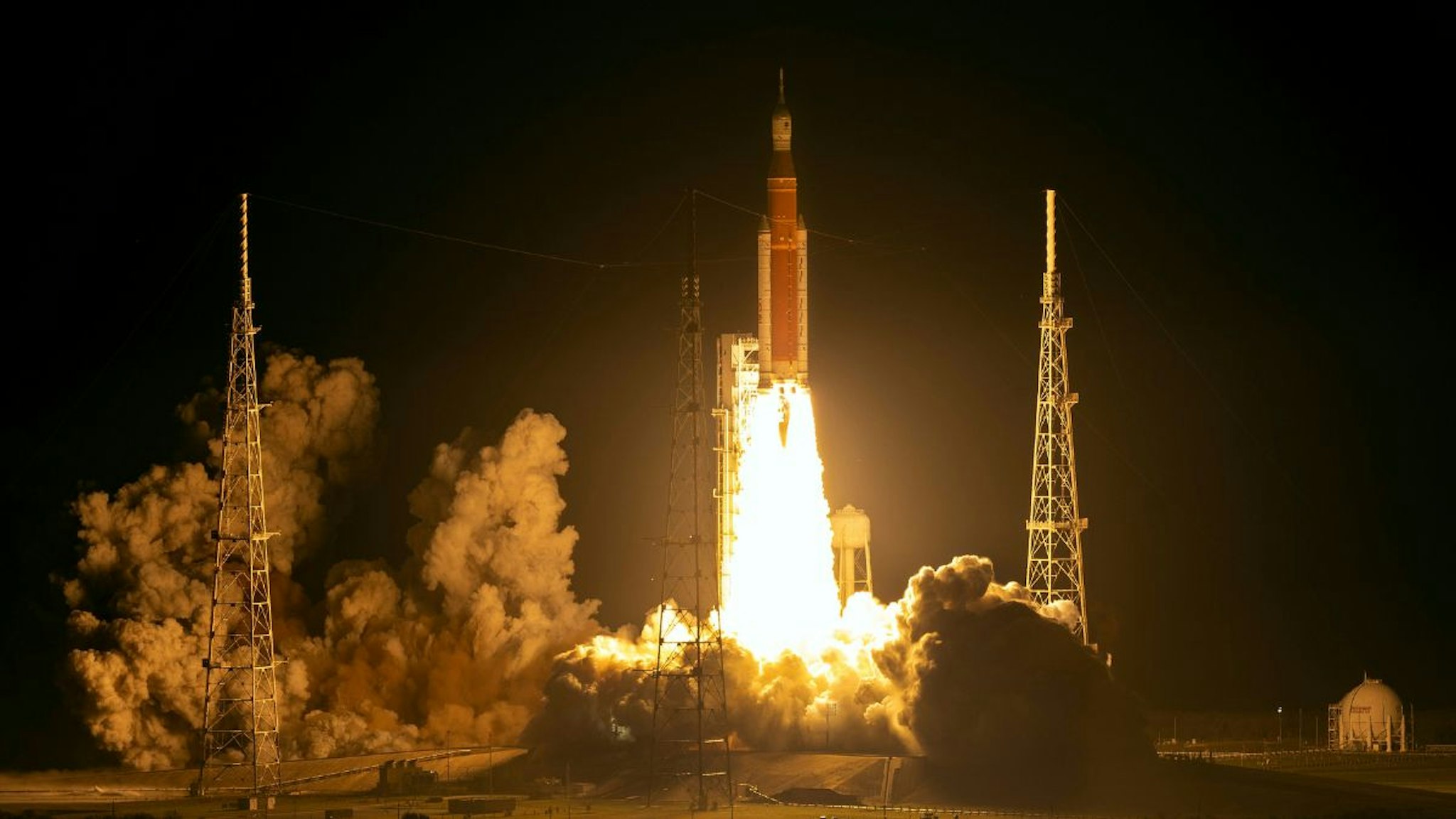NASA’s Orion spacecraft is on its way to the Moon in the first lunar rocket launch since the last Apollo mission 50 years ago.
The Artemis I mission launched the Space Launch System (SLS), the most powerful rocket in the world, in an uncrewed flight at 1:47 a.m. Eastern Time on Wednesday from Launch Pad 39B at NASA’s Kennedy Space Center in Florida.
“What an incredible sight to see NASA’s Space Launch System rocket and Orion spacecraft launch together for the first time. This uncrewed flight test will push Orion to the limits in the rigors of deep space, helping us prepare for human exploration on the Moon and, ultimately, Mars,” NASA Administrator Bill Nelson said following the successful liftoff.
#Artemis I, you are going to the Moon!
At 1:47 am EST the @NASA_SLS rocket and @NASA_Orion spacecraft launched from Florida to make its 280,000-mile journey to the Moon. Still to come we have coverage of major milestones, an inside look of Mission Control, and more. pic.twitter.com/2SLQSrOSXc
— NASA's Johnson Space Center (@NASA_Johnson) November 16, 2022
The lunar mission will take more than 25 days to visit the Moon and return to Earth in a key test ahead of the next planned mission to send American astronauts to the Moon within the next three years.
Jim Free, NASA deputy associate administrator for the Exploration Systems Development Mission Directorate, celebrated the liftoff of Orion.
“It’s taken a lot to get here, but Orion is now on its way to the Moon,” Free said in the statement from NASA. “This successful launch means NASA and our partners are on a path to explore farther in space than ever before for the benefit of humanity.”
NASA’s Johnson Space Center in Houston will conduct the mission over the next several days, with Orion expected to near the surface of the Moon on November 21.
The launch was highly celebrated after multiple delays since August. The initial attempt was stopped following a faulty temperature sensor. A launch one week later was also scrapped after discovering a liquid hydrogen leak.
As The Daily Wire previously reported, the launch team had just begun filling Artemis I with nearly one million gallons of fuel early in the morning when they noticed the leak at the bottom of the rocket in the engine section, the Associated Press reported. Ground crews did their best to stop the leak and save the launch, attempting to stop and restart the flow of liquid hydrogen and flushing helium through the fuel line, but ultimately were forced to reschedule the mission.
Weather threats due to Hurricane Ian further delayed the Artemis I project that has involved the work of several thousand people worldwide.
The Artemis missions seek to eventually land the first woman and first person of color on the Moon with efforts to establish a long-term presence on the lunar surface in preparation for a future Mars mission.
NASA’s ambitious goals are not the only plans for reaching the Moon. Russia and China have also announced that they would collaborate on a future moon mission, while Elon Musk’s SpaceX is developing a project for a future lunar landing.

